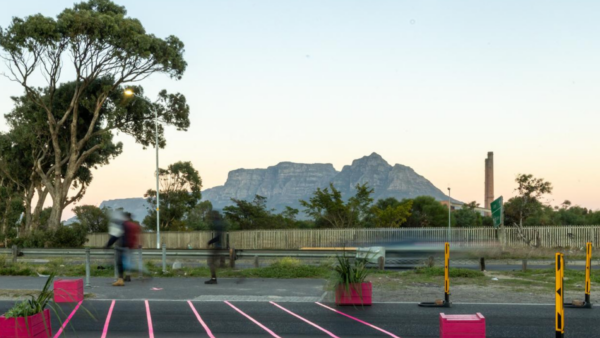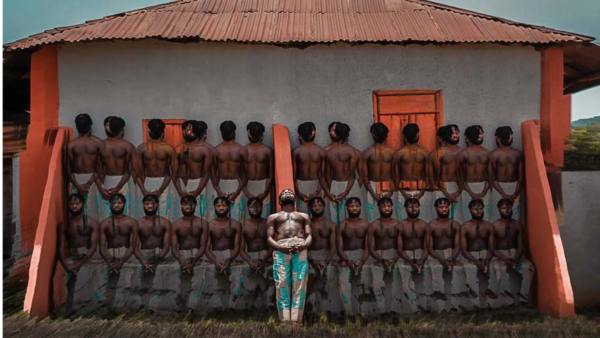

Internationalization of the design sector – 12 projects selected
Twelve projects have been selected in the first round of the Internationalization of the Design Sector Grant Scheme 2023. Mireille de Koning, programme manager Internationalization, reflects on this round.
general impression
The Internationalization of the Design Sector programme supports international projects aimed at collaboration and exchange within the three fields represented by the fund: design, architecture and digital culture. Due to this broad scope, there is often a broad diversity of project proposals and the applications vary from start-up grants to projects that involve a consortia of organisations and stakeholders across several geographies..
This round supports collaborative projects in a range of countries, disciplines and addressing various social and environmental themes. This includes topics such as detoxifying the pollution of air, soil and food; the role and position of women in design and the role and impact of new technologies on the way we live (together). The majority of the applications were well-developed and provided a persuasive rationale for the chosen topic(s), methodologies and involved expertise and collaboration(s). The positioning of the applicant(s) within the local context, local demand and the relevance of the project proposal for the creative industry in the Netherlands was also cleary described. The following projects offer a good example of the breadth of the topics addressed:

Let's Become Fungal – Yasmine Ostendorf
Let's Become Fungal; system-design based on mycelium and other fungal qualities is a programme consisting of twenty activities based on the interviews with designers, farmers, artists and mycologists in Latin America and the Caribbean area that Yasmine Ostendorf conducted in 2021 and 2022, and were published in the same-titled book, Let’s Become Fungal. The project takes mycelium (the underground rhizomatic network of fungi) as the starting point to advocate using biomimicry for systems design, rather than for object design. According to Ostendorf, there is a growing interest in fungi and mycelium as a material. How a rhizomatic network is constructed and how it functions is not just a fascinating ecological system and material, but has a wide applicability for potential new systems and ways of thinking and acting. In the programme, twelve tailored workshops with international participants in various countries will explore twelve fungal strategies for systems design, based on biomimicry. The intended outcomes of the workshops will consist of shared design strategies by the participants for the development and implementation of biomimicry-based alternatives. The workshops offer practical skills and knowledge of the possibilities in the intersecting field of design and mycology, as well as a wider understanding and application of biomimicry. They are also intended as a approach to build a strong alliance between key players in this field in the Netherlands, Latin America and the Caribbean area.

Soengoe Kondre (Submerged Heritage) – Vincent van Velsen
The project proposed by curator Vincent van Velsen -- Soengoe Kondre (Submerged Heritage) – researches how an infrastructural project has affected and influenced various local communities in Suriname. The project comprises a literature and archival study, a public programme and various conversations (oral histories) with individuals and organizations in Suriname and the Netherlands. On 1 February 2024, it will be 60 years ago that the sluices of the Brokopondo Dam in Suriname were permanently closed. The resulting reservoir forced 25 villages in the area (with 5000 inhabitants in all) to relocate, with major social, economic and cultural consequences for these communities. The floods of early 2022 in Suriname focused extra attention on the reservoir. The project examines the changes brought about by this infrastructural project from several angles. The overall impact on the living environment then and now is substantial, relevant and urgent. Van Velsen’s project aims to provide insight into why the dam was built and its social, economic and cultural consequences, by means of an exhibition and a film. Besides literature and archival research, Van Velsen also centers the perspectives of various directly affected individuals. The resulting exhibition will be hosted by the Nieuwe Instituut in September 2023. The film will be screened in various locations and will hopefully gain a life of its own in Suriname and at film festivals.

RETHINK SOFTLY – Otura Design
The project Rethink Softly aims to bring together groundbreaking knowledge and practices in the field of furniture production. According to designer Rianne Koens of Otura Design, the production of furniture is shifting from the Far East Asia to Turkey. At the same time, a transition is occurring from linear to circular design. However, the designer considers that the furniture industry remains stuck in old habits, including the use of harmful materials such as polyurethane. With Rethink Softly, Koens hopes to boost the circular economy through industrially applicable alternatives. Based on preliminary research, Koens intends to map out relevant studies and experiments, to talk to various experts and visit partners, and to link up with motivated makers. Dutch, Turkish and English makers will be brought together in small multidisciplinary teams to research, apply and share sustainable alternatives for polyurethane. At the same time, the project will work closely with Turkish producers to arrive at industrially viable results. This project revolves around the quest for eco-friendly and sustainable solutions for the soft seating industry.
Click here to see all selected projects for the Internationalization of the Design Sector programme in 2023.
figures
Thirty-five grant applications were admitted of which 12 were honoured, equalling 37%. The budget of € 375,000 was not sufficient to honour all positively assessed applications in this round, so that the Advisory Committee was forced to prioritise some over others. The procedure followed is described in the Internationalization of the Design Sector programme. One project was granted a sum lower than was asked for, and one project could not be supported altogether.
The next deadline for the Internationalization of the Design Sector programme is 4 October 2023.







